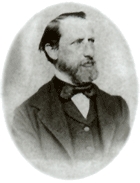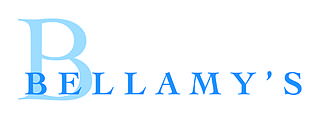Related Research Articles

Infant formula, also called baby formula, simply formula, baby milk or infant milk, is a manufactured food designed and marketed for feeding to babies and infants under 12 months of age, usually prepared for bottle-feeding or cup-feeding from powder or liquid. The U.S. Federal Food, Drug, and Cosmetic Act (FFDCA) defines infant formula as "a food which purports to be or is represented for special dietary use solely as a food for infants by reason of its simulation of human milk or its suitability as a complete or partial substitute for human milk".

Nestlé S.A. is a Swiss multinational food and drink processing conglomerate corporation headquartered in Vevey, Vaud, Switzerland. It has been the largest publicly held food company in the world, measured by revenue and other metrics, since 2014. It ranked No. 64 on the Fortune Global 500 in 2017 and No. 33 in the 2016 edition of the Forbes Global 2000 list of the largest public companies.

Danone S.A. is a French multinational food-products corporation based in Paris. It was founded in 1919 in Barcelona, Spain. It is listed on Euronext Paris where it is a component of the CAC 40 stock market index. Some of the company's products are branded Dannon in the United States.

Henri Nestlé was a Swiss-German confectioner and the founder of Nestlé, the world's largest food and beverage company.

Milk chocolate is a form of solid chocolate containing cocoa, sugar and milk. It is the most consumed type of chocolate, and is used in a wide diversity of bars, tablets and other confectionery products. Milk chocolate contains smaller amounts of cocoa solids than do dark chocolates, and contains milk solids. While its taste and texture have been key to its popularity, milk chocolate has historically also been promoted as a healthy food, particularly for children, and recent evidence has shown that it may provide antioxidant health benefits.

Kit Kat is a chocolate-covered wafer bar confection created by Rowntree's of York, United Kingdom, and is now produced globally by Nestlé, except in the United States, where it is made under licence by the H. B. Reese Candy Company, a division of the Hershey Company.
A boycott was launched in the United States on July 4, 1977, against the Swiss-based multinational food and drink processing corporation Nestlé. The boycott expanded into Europe in the early 1980s and was prompted by concerns about Nestlé's "aggressive marketing" of infant formulas, particularly in underdeveloped countries. The boycott has been cancelled and renewed because of the business practices of Nestlé and other substitute manufacturers monitored by the International Baby Food Action Network (IBFAN). Organizers of the boycott as well as public health researchers and experts consider breast milk to be the best nutrition source for infants. The World Health Organization (WHO) recommends infants to be exclusively breastfed for the first six months of their lives, nevertheless, sometimes nutritional gaps need to be filled if breastfeeding is unsuitable, not possible, or inadequate.
Butterfinger is a candy bar manufactured by the Ferrara Candy Company, a subsidiary of Ferrero. It consists of a layered crisp peanut butter core covered in a chocolatey coating. It was invented by Otto Schnering of the Curtiss Candy Company in 1923. The name was chosen by a popularity contest.
The International Code of Marketing of Breast-milk Substitutes is an international health policy framework for breastfeeding promotion adopted by the World Health Assembly (WHA) of the World Health Organization (WHO) in 1981. The Code was developed as a global public health strategy and recommends restrictions on the marketing of breast milk substitutes, such as infant formula, to ensure that mothers are not discouraged from breastfeeding and that substitutes are used safely if needed. The Code also covers ethical considerations and regulations for the marketing of feeding bottles and teats. A number of subsequent WHA resolutions have further clarified or extended certain provisions of the Code.

Daniel Peter was a Swiss chocolatier and entrepreneur who founded Peter's Chocolate. A neighbour of Henri Nestlé in Vevey, he was one of the first chocolatiers to make milk chocolate and is credited for inventing it, in 1875 or 1876, by adding powdered milk to the chocolate.

Swiss chocolate is chocolate produced in Switzerland. While cacao beans and other ingredients such as sugar cane originate from outside Switzerland, the actual production of the chocolate must take place in Switzerland. Switzerland's chocolates have earned an international reputation for high quality with many famous international chocolate brands.

Dualit is a British manufacturer of kitchen and catering equipment, coffee, tea capsules. It is known for its range of heavy-duty toasters. It was primarily designed for the commercial catering market, its domestic usage increased during the 1990s

A single-serve coffee container is a method for coffee brewing that prepares only enough coffee for a single portion.
Guangdong Yashili Group Co., Ltd. is a leading privately owned infant formula and soymilk products company in China. Based in Chaoan in the Chaozhou region of the Guangdong Province, China and, incorporated in the Cayman Islands. The company also has a Hong Kong-listed entity Yashili International Holdings Limited.

Lactalis is a French multinational dairy products corporation, owned by the Besnier family and based in Laval, Mayenne, France. The company's former name was Besnier SA.

The Nescafé Dolce Gusto is a coffee capsule system from Nestlé. The machines are produced by hardware manufacturers Arno from Næver, Krups and De'Longhi.

Bellamy's Australia is a major Australian food and beverage company, and is the parent company of Bellamy's Organic, Australia's largest organic infant formula producer.

Nestlé Nespresso S.A., trading as Nespresso, is an operating unit of the Nestlé Group, based in Lausanne, Switzerland. Nespresso machines brew espresso and coffee from coffee capsules, a type of pre-apportioned single-use container, or reusable capsules (pods), of ground coffee beans, sometimes with added flavorings. Once inserted into a machine, the capsules are pierced and processed, water is then forced against a heating element at high pressure meaning that only the quantity for a single cup is warmed. By 2011 Nespresso had annual sales in excess of 3 billion Swiss francs. The word Nespresso is a portmanteau of "Nestlé" and "Espresso", a common mechanic used across other Nestlé brands.
Nestlé Pakistan is a Pakistani food company which is a subsidiary of Swiss multinational company Nestlé. It is active in dairy, confectionery, coffee, beverages, infant nutrition and bottled drinking water areas. It is based in Lahore, Pakistan.
References
- 1 2 3 4 5 Revill, John (7 June 2011). "Nestlé to Take BabyNes Global". The Wall Street Journal . Dow Jones & Company . Retrieved 2 May 2013.
- ↑ Stiff, Peter (26 May 2011). "Nestlé to launch baby milk capsule system". The Times . Retrieved 2 May 2013.
- ↑ "Nestlé launches BabyNes, the first comprehensive nutrition system for babies, in Switzerland". Nestlé Global. Retrieved 21 April 2013.
- 1 2 3 4 Meikle, James (26 May 2011). "Nestlé launches coffee-style machine for baby milk". The Guardian . Retrieved 2 May 2013.
- 1 2 Simonian, Haig (18 April 2012). "BabyNes feeding system looks to milk an idea". Financial Times . Retrieved 2 May 2013.
- ↑ Popolo, Meredith (1 March 2013). "11 Tech Gadgets for Babies". PC Magazine . Ziff Davis. Archived from the original on 10 December 2016. Retrieved 2 May 2013.
- 1 2 Ellis, Jim; Mulier, Thomas (2 July 2012). "BabyNes steams formula automatically for parents". SFGate . Hearst Corporation . Retrieved 2 May 2013.
- ↑ "Nestlé's BabyNes baby-formula machine to cost $300". SFGate . Hearst Corporation. 2 July 2011. Retrieved 2 May 2013.
- ↑ Doherty, Dermot (25 August 2011). "Nestlé's BabyNes Sales Exceed Expectations, Le Matin Reports". Bloomberg . Archived from the original on 9 March 2016. Retrieved 2 May 2013.
- ↑ Reuters (May 25, 2011). "Nestlé Unveils BabyNes, A Nespresso-Style Machine For Baby Milk". Huffington Post.
{{cite web}}:|author=has generic name (help) - ↑ Binswanger, Michèle (7 June 2011). "Single Serving: Nestlé Invents Luxury Baby Formula Machine". Time . Archived from the original on June 10, 2011. Retrieved 2 May 2013.
- ↑ Corbet Storch, Amy (April 10, 2011). "From The WTF Product Files: Keurig For Babies". mamapop.com. Archived from the original on June 20, 2013.